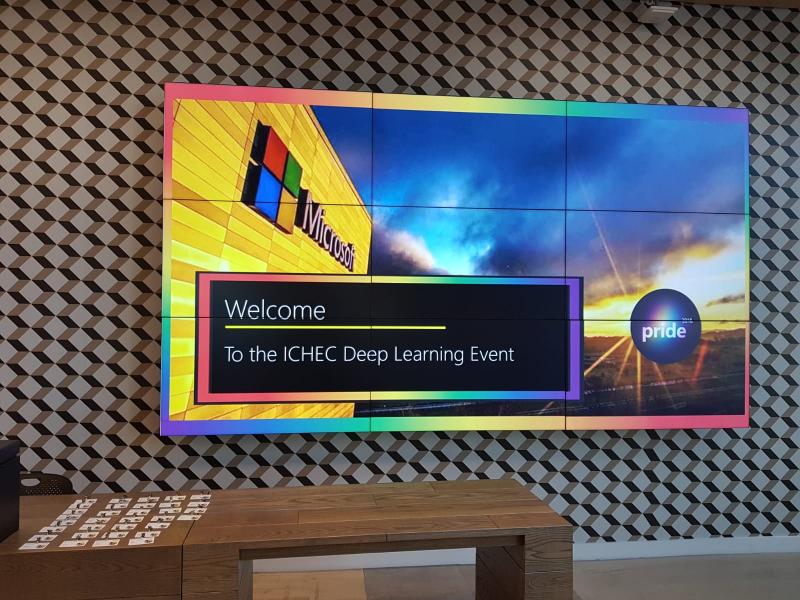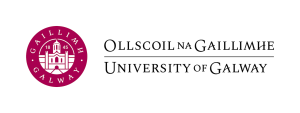Microsoft and ICHEC team up to showcase Deep Learning through neural networks

On Friday 29th June, 40 heads of department, chief technical and executive officers of public organisations and industry leaders attend an invitation only event consisting of a series of keynotes titled “Demystifying Deep Learning”, discussing real world applications along with technical walk-throughs on the operation and structure of deep neural networks.
Deep Learning is becoming an inescapable facet of everyday life from how we use the internet, to banking, advancing HealthCare and the latest in IoT and renewable energy. In high-impact and personal domains such as health care, for instance cancer study and ophthalmology, highly trained specialists are often required to make accurate and timely disease diagnosis from digitised medical records and scan images. Globally, deep learning has started delivering profound results by improving both the accuracy and efficiency of such diagnosis, thus becoming a valuable tool in the hands of the medical practitioners.
Commercially, deep learning is being used to create digital twins of industry infrastructure for predictive maintenance of facilities to pre-emptively reduce the risk and cost incurred from failures and major problems. For instance, Baker Hughes (General Electric) is augmenting its Oil and Gas operations with deep learning and AI aided solutions in collaboration with Nvidia.
Deep Learning is a very specific subset of artificial intelligence concerned with algorithms based on learning data representations as opposed to task-specific- algorithms. With large and complex data sets, deep learning trains a computer to perform tasks in a human-like manner, such as describing content, recognising speech, classifying images or making predictions based on patterns.
It has been demonstrated that computers can learn how to complete tasks that sometimes we don’t know how to do ourselves, or maybe can do them better than us.
Dr Bruno Voisin, Senior Data Scientist at ICHEC asks “If you wanted to get a computer to do something you would have to program it. What if you want to do something but don't know how to do it yourself, or it’s far too complex to programme?”
Computer algorithms try to mimic how layers of neurons work together to ‘learn’. So while traditionally the programmer will tell the computer the predefined rules and patterns to look for in the data, deep learning approaches sets up basic parameters about the data and train the computer to learn on its own by recognising patterns.The key now is to acknowledge and unlock the potential of deep learning in domains such as medical images, drug discovery, environmental sciences, Banking and much more.
“While it is important to acquire the technical skills to create deep learning solutions, we are yet to truly realise its potential applications. This is possible only if domain experts and decision makers pool their resources to identify more problems that can deliver true AI. Though deep learning seems mature now, we are just getting started” explained Dr. Venkatesh Kannan, Novel Technologies Lead at ICHEC.
The advances demand a workforce with the skills to use powerful neural networks, this has already lead to the launch of a Masters in Artificial Intelligence (AI) in the University of Limerick in collaboration with The Irish Centre for High-End Computing (ICHEC).
To address the interim demand, ICHEC has teamed up with Microsoft, Google, Intel, Nvidia, and MathLab to deliver first of its kind training in deep learning. The course will begin from 17th September, and through this 5-day technical course (run over 2 sessions), participants can learn more about: data segmentation, concepts of artificial neural networks, supervised and unsupervised learning techniques and GPU-accelerated application of deep learning frameworks on the cloud. These courses will equip participants with all the skills required to start using deep learning in a way that is relevant to their organisation and their domain.
For more information please visit ICHEC Deep Learning Course



